The Netherlands, sometimes known as Holland, is one of Europe’s most progressive and tolerant countries. It may be small and flat, but the Netherlands is a great place to live and punches well above its weight!
And if you’re an Australian aged between 18 and 30 years old (inclusive), there’s good news. You can apply for a Dutch working holiday visa to live and work in The Netherlands for up to 12 months!
With this visa, you can also leave & re-enter the Netherlands as many times as you like during the year and travel to other parts of Europe for up to 90 out of every 180 days.
Amsterdam is a popular destination in the Netherlands. But there are also lots of university towns scattered across the country such as Utrecht, Rotterdam, Delft, The Hague or Groningen which welcome lots of international students and enjoy vibrant expat communities.
This page contains information about The Netherlands’ Working Holiday Programme for Australian citizens, as well as some useful tips about living in The Netherlands. It was last updated on 16 January 2026.
Key facts about The Netherlands
-
Population: Approx. 18 million
-
Official language: Dutch
-
Capital city: Amsterdam (although The Hague, which is “Den Haag” in Dutch, is the seat of government)
-
Largest cities: Amsterdam, Rotterdam, The Hague, Utrecht
-
Name of the country in Dutch: Nederland
-
Currency: Euro
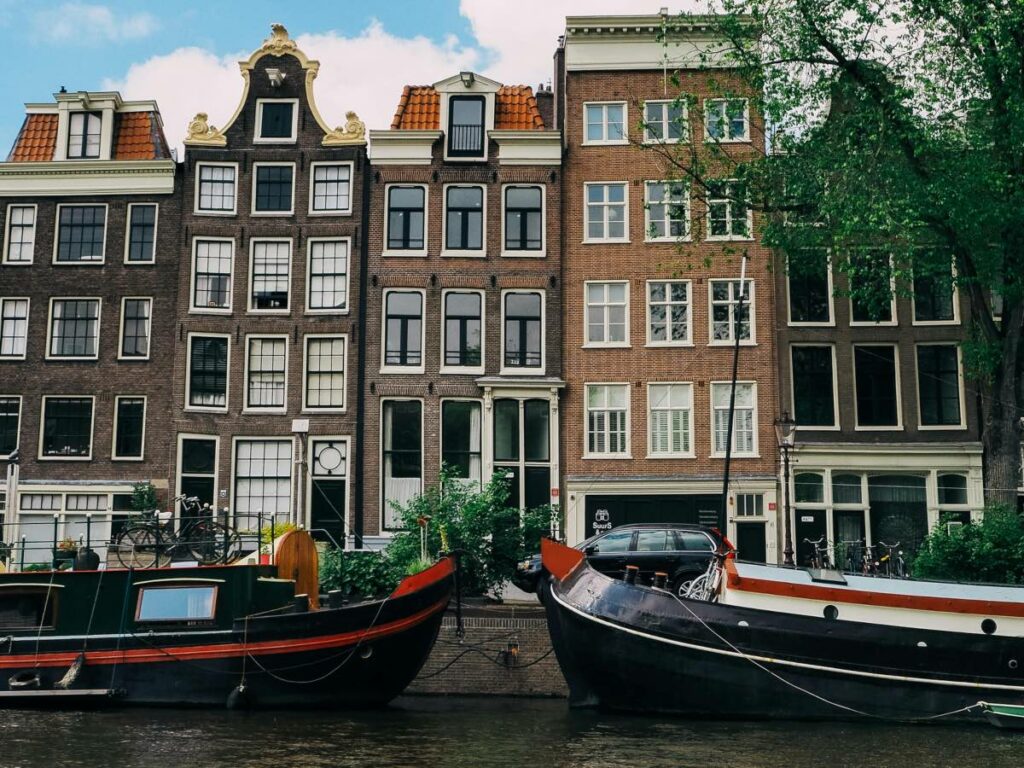
The Netherlands Working Holiday Visa requirements
In addition to Australians, The Netherlands offers Working Holiday visas to citizens of Argentina, Canada, Hong Kong, Japan, New Zealand, South Korea, Taiwan and Uruguay.
The information on this page is applicable to Australian citizens and may differ for citizens of other countries. Please check the Dutch government website for information about working holiday visas for other nationalities.
To apply for a visa under the Netherlands’ Working Holiday Programme (WHP) as an Australian citizen, you must meet the following requirements:
-
Aged between 18-30 years old (inclusive) at the time of application
-
The main reason for coming to the Netherlands is for a holiday/cultural exchange, with any work and/or study to be incidental
-
At the time of submitting your application, your main place of residence should be in your country of nationality.
You cannot apply for this visa if you:
-
Will be accompanied by dependent children
-
You have previously held a working holiday visa in the Netherlands
-
Have a criminal record
Documents needed to apply for this visa
When applying for a Dutch residence permit under the Working Holiday Programme as an Australian citizen, you will need to provide the following documents:
-
A valid passport (with at least six months until expiry)
-
A return flight ticket (or proof of sufficient funds to purchase a ticket back to your home country)
-
Proof of sufficient funds to support yourself during your initial stay in The Netherlands
-
Proof of health/travel insurance with sufficient medical coverage in The Netherlands
There is an application fee of €85 (approx. AUD147), payable following the application process.
You will also need to visit an IND office to provide biometric data (fingerprints, signature and to have your photo taken) later in the application process.
Although you don’t need this to apply for a working holiday visa, you might also be required to show a legalised copy of your birth certificate when you register with your local Dutch municipality. To get your document legalised, you will need to obtain an Apostille stamp from a DFAT Passport Office in Australia or the Australian embassy in The Hague (if you’re already in The Netherlands). There is a fee for this service.
Working in the Netherlands
The IND states on its website under “Working with the residence permit”:
It says on the back of your residence permit: ‘Work permit not required for occasional work while on WHP/WHS, other work not permitted’ (in Dutch: TWV niet vereist voor incidentele arbeid in het kader van WHP/WHS, andere arbeid niet toegestaan).
Occasional work means that you are allowed to work only to financially support your stay in the Netherlands. Then your employer does not need a work permit (in Dutch: tewerkstellingsvergunning or TWV) for you. You may, for example work fulltime, but not the whole year for the same employer. Nor may you work as a self-employed person. This is because the main purpose of your stay is cultural exchange.
A previous restriction to the number of weeks you could work for a single employer no longer applies, however you still cannot work for one employer for a full year.
If you are coming to The Netherlands for the main purpose of full-time employment, study, au-pair work or freelance work, you should apply for a different type of visa (e.g. an au pair visa).
How to apply for a Dutch Working Holiday Visa as an Australian
There are three ways to apply for a Dutch working holiday visa:
- Submit an online application (you can do this before or after you arrive in the Netherlands),
- Apply person at an IND office in The Netherlands (with an appointment), or
- Submit a written application by post after arriving in The Netherlands
You can apply for a Dutch working holiday permit up to 3 months before your intended arrival date in The Netherlands. However, you may prefer to apply immediately after you arrive in The Netherlands because the visa is only valid for 12 months from the application date.
You can arrive in The Netherlands without a visa (you may stay for up to 90 days as a tourist), then apply for a residence permit after you arrive. If you do this, you should apply as soon as you arrive in the Netherlands.
The Dutch IND website has more information in English about the application process and forms. (IND stands for “Immigratie en Naturalisatiedienst”, which translates to “Immigration and Naturalisation Service”.)
What happens after you’ve applied for a residence permit
You will receive a letter acknowledging receipt of your application. This will contain:
-
Your V-number (this is your unique registration number with the IND, which you will need in future interactions with Dutch authorities), and
-
Instructions for payment of the visa fee (if you did not already pay online when submitting your application).
While this letter was previously sent by post, some Working Holidays for Aussies readers said they recently received this information by email. They said it took around three weeks after applying for their visa.
After you receive this letter, you can make an appointment online to visit the IND to provide biometric data (i.e. have your fingerprints, photo and signature taken) and receive a temporary residence endorsement sticker. This passport sticker allows you to reside and work in The Netherlands for up to 3 months while you wait for the final outcome of your application.
It can take up to 3 months for the IND to process your application. It is normal for this to take 2-3 months, but don’t worry. Anecdotally, as long as you meet all of the criteria and don’t have a criminal record, your application is likely to be approved.
Once your application is approved, you can make an appointment to collect your residence permit (this is a pink card) in person from your nominated IND office.
You can make an appointment at any IND office online. However, note that appointments fill up quickly so you may need to wait several weeks for the next appointment. So don’t delay making your appointment!
As you can see, you will have to deal with a bit of bureaucracy when applying for your residence permit and arriving in the country. But living in the Netherlands is worth the hassle!
In any case, visiting town halls or IND offices in The Netherlands is generally a pleasant experience. Most of the officials are polite and speak English well. Occasionally, they might even offer you free tea or coffee.
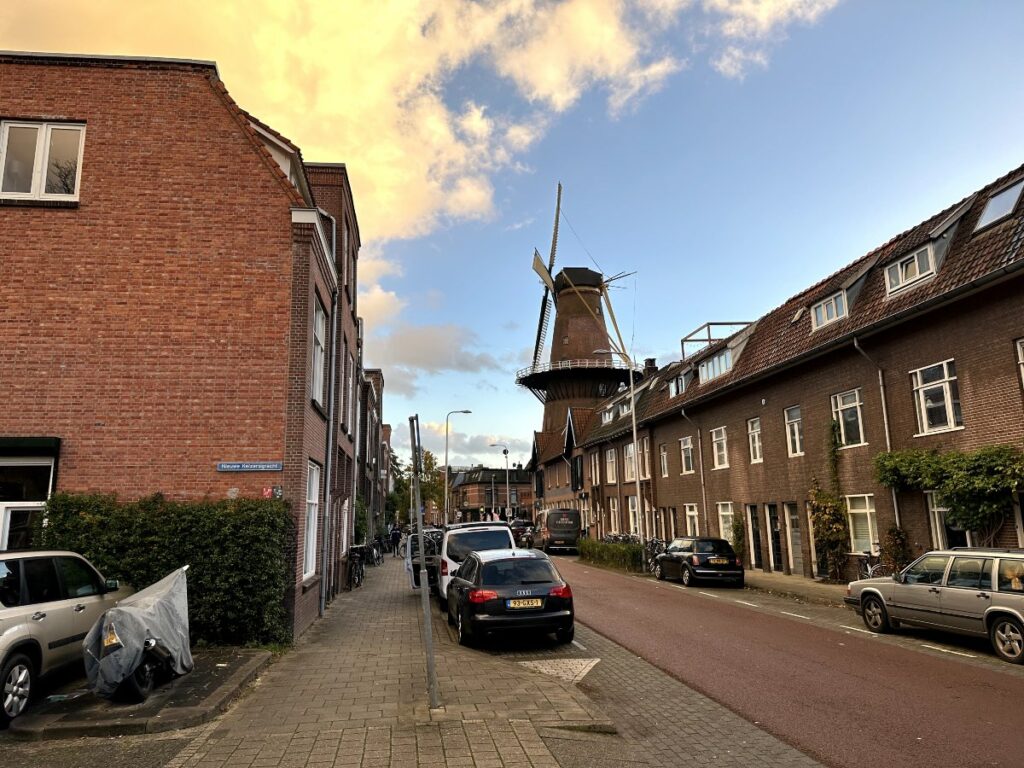
Arriving in The Netherlands
If you’ve already applied for a residence permit, check whether you need to make an appointment at an IND office to provide biometric data and receive a temporary residence endorsement sticker. Or, if you haven’t yet applied, you will need to start the visa application process after arriving in the country. See the information in the previous section which explains the process.
Other than this, it is a Dutch requirement to register your address with your local municipality (known as the “gemeente”) after arriving in the Netherlands. You will need to do this within 5 days of moving into your new address in the Netherlands or finalising your rental contract. Registration is also required when moving house and leaving the Netherlands.
You can make an appointment for registration with your local “gemeente” (town hall). You’ll need to bring your passport and proof of occupancy (e.g. a rental contract) to the appointment. Some municipalities may also ask to see your legalised birth certificate.
Fines apply if you don’t register. But you will need to do this anyway to receive a BSN (“burgerservicenummer”, or personal service number) which you’ll need when accessing many services in The Netherlands such as opening a bank account, getting a job or accessing health care.
Finding a place to live
There are many websites that can assist you with finding accommodation in the Netherlands. (“Move to Netherlands” lists many of them.) You could also search via a real estate agent or Facebook/expat group.
If you are studying in the Netherlands, your university may assist you with finding accommodation. They might even provide you with access to subsidised student housing.
When looking for a shared flat (which is very common for young people in the Netherlands), the most popular website is Kamernet. If multiple people are interested in the same room of a share flat, it is common for the existing housemates to host what’s called a “hospiteeravond” (roughly translating to “hospitality evening”) where they invite potential candidates and then decide who to rent the room to. If you have to go to one of these, be prepared for it to be competitive and awkward.
There are a few other things you should be aware of when looking for accommodation in The Netherlands:
-
Some housing advertisements state that “registration is not possible”. This refers to registering with the gemeente at that address. You should avoid rentals that don’t allow registration as (a) it is technically illegal not to register, and (b) if you can’t register, you won’t be able to get a BSN which you’ll need to open a bank account, get a job, etc.
-
There is a housing shortage in some cities, such as Amsterdam and Utrecht. Housing can also be limited in other university cities around the beginning of university semesters, as students flock to these cities from elsewhere in the Netherlands as well as from other countries.
-
Look out for scammers on housing websites who demand up-front payment before you’ve seen the property or overcharge for shabby properties (there are laws in the Netherlands regulating rental prices).
Dutch health insurance requirement
The Netherlands has a requirement for residents to take out basic health insurance (“basisverzekering”) within 4 months of their permanent residence permit coming into force. If you are working in The Netherlands, this is a compulsory requirement and you may receive a fine if you don’t apply for health insurance cover. You could expect to pay around €100/month for basic health insurance.
The Zorgverzekeringslijn website has more information about this.
Once you have health insurance, consider registering immediately with a local GP (“huisarts”). This will make things easier for you in the future if you get sick or need to see a doctor.
Dutch health insurance companies cannot deny your application for health insurance if you are eligible for it. But under some circumstances, e.g. if you are not working for a Dutch employer or are not considered a Dutch resident for whatever reason, you may be ineligible for Dutch basic health insurance. In this instance, you can apply for a ruling from the Sociale Verzekeringsbank (SVB). If they rule that you are entitled to insurance, you can show their confirmation letter to any insurance company and they must insure you. Otherwise, the SVB will inform the CAK and you will not be fined for not having the compulsory insurance.
If you are not eligible for basic insurance in The Netherlands, you should still ensure you are covered by travel insurance or another health insurance policy that you are eligible for. You may also be able to benefit from the Australian government’s reciprocal Medicare agreement with The Netherlands.
Living in The Netherlands
The lifestyle in the Netherlands is quite relaxed, and life is relatively comfortable. Infrastructure is excellent and English is widely spoken, especially in the larger cities.
Amsterdam is one of the most popular places to live, but it’s also the most expensive (and at times can be overrun by tourists). Don’t be afraid to consider living in another city such as Utrecht, Den Haag, Rotterdam, Leiden, Delft or Eindhoven.
Utrecht is a particularly beautiful city with around 350,000 inhabitants. The city has all of the conveniences you would need, good nightlife, and a large international student & expat community (including a few other Australians who are part of the “Aussies and Kiwis in Utrecht” Facebook group) as it’s home to a large university and many international businesses.
Canals weave their way through Utrecht’s beautiful medieval city centre, and it’s very close to nature including parks, forests and lakes. The city is also close to Amsterdam and Schiphol Airport, with regular high-speed trains taking you to both places in less than 30 minutes.

Getting around
Schiphol Airport in Amsterdam is the main international airport, with connections to all over Europe and the world. It’s a large, efficient and convenient airport with a railway station directly underneath it. Some low-cost airlines also fly from airports in Eindhoven and Rotterdam.
The entire country is well-connected by high-speed trains, but most Dutch people cycle shorter distances. You are unlikely to need a car.
The Netherlands is full of dedicated cycle paths and there is plenty of bicycle parking as this is the main mode of short-distance transport. After arriving in the Netherlands, one of the first things you should do is buy a bicycle. But make sure you invest in a good lock, as bikes are frequently stolen!

Connect with other Aussies in the Netherlands
If you’re an Australian moving to the Netherlands, you may also find it useful to join the “Australians in Amsterdam” Facebook group.
While best efforts are made to keep this information updated, we do not guarantee its accuracy. If you spot an error, would like to suggest new information to be added or simply have a question, please let us know in the comments and we’ll endeavour to respond or update the article as quickly as possible!
Before asking a question, please read through the previous comments to check if your query has already been answered.
Matt is the founder of Working Holidays for Aussies. Passionate about travel and always looking for great deals, he believes that a gap year is the perfect opportunity to immerse yourself in another culture and learn all the things they didn’t teach you in school!
Originally from Australia, Matt has travelled to over 100 countries, lived in 7 countries, and has extensive real-world experience with working holiday visas.



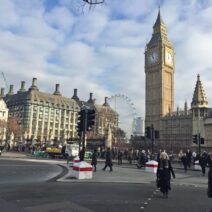



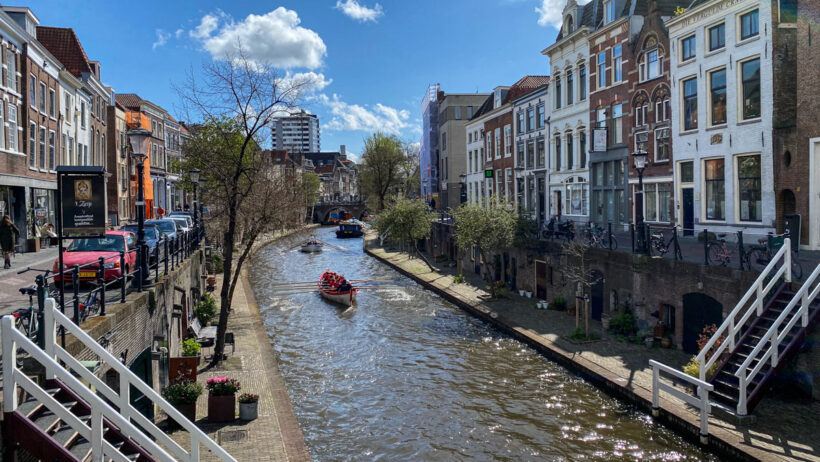




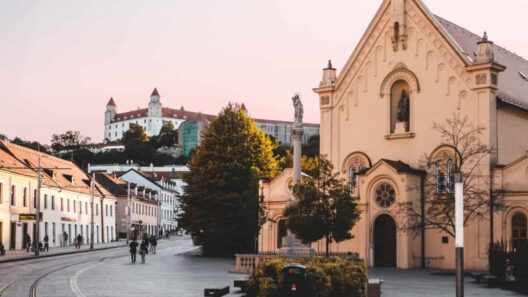
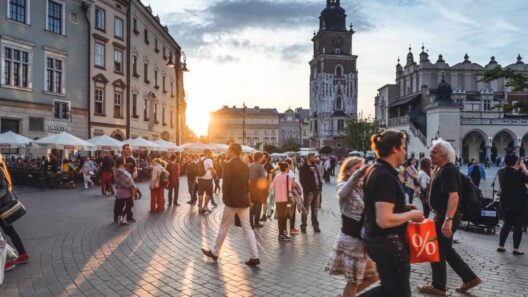
Hi Matt, Amazing and very helpful article! I just had a question, I have just done the online application and had to give my address for back home because I am currently travelling. Do you know if they also send emails when its been approved or only letters? Is there a way to check progress and how long does it typically take to hear back?
Hopefully you have some information on this if not all good and thankyou anyways!!
Hi Isabella, in the past the IND only sent these letters out by post but other Working Holidays for Aussies readers have confirmed that in recent years the IND is also sending emails. It usually takes several weeks to hear back.
See this comment trail for more details: https://workingholiday.au/netherlands-working-holiday-visa/#comment-9568
Hey Matt, thanks for all of the info.
I’m planning on getting a visa so I can work in The Netherlands but I also do swings in Australia, so will I be able to book a return ticket only 5 weeks from entering but I’m planning to come back plenty of times after that.
Or would it be better to just show enough funds for my stay? And do you know he much “efficient funds” is?
Thanks so much!
Hi Taylor, with the working holiday visa you are free to leave and return to the Netherlands as often as you like while the visa remains valid. Just show that you have enough funds to buy a ticket back to Australia at the end of your 12 months.
As a rough guide, I’d suggest that you should show that you have at least AUD5,000 to support yourself during your initial stay in the country, plus at least AUD2,000 for a flight home. To be safe, it would probably help your application if you had a bit more than that in the bank.
Alright thanks so much for that! What if I have a return ticket booked after only a month in the Netherlands but plan to come back over. Will I still be able to have the visa?
I would suggest that you do not show that booking when you apply for your visa. The point of the “return ticket” requirement is to prove that you have the means and intention of returning to Australia once your visa’s validity period is up. They don’t care or need to know that you plan to make a visit back home during the middle of your time in the Netherlands.
Hey Matt. If I have a biometrics appointment booked for the 27/5/25 and do my biometrics and receive my temporary sticker on that date, from what date will the Schengen days not count towards the 90 day restriction. Thanks
Hi Jack, I can’t specifically answer the question about Schengen days but once you get the temporary sticker, that’s usually valid for 90 days. You would generally receive your Dutch working holiday visa before that sticker expires. So, once you get the sticker you’re basically OK to remain in the Schengen area.
Hi Matt,
Thanks for such a useful website, I’m applying with some friends and am currently in France travelling, is it still okay to book the IND appointment to be in the Netherlands (i.e Amsterdam) if we haven’t applied online in our home country? or do we have to visit a different IND office possible in France as a result.
Regards,
Kai.
Hi Kai, glad you’ve found this website useful. I started it because I wished there was a resource like it when I was applying for my own working holiday visa. 🙂
As far as I understand, you can still apply online (within 3 months of arriving or after arriving in The Netherlands) and just make an appointment to visit an IND office in the Netherlands for when you arrive to give biometrics and get the initial sticker. Obviously you need to make sure you haven’t been inside the Schengen Area more than 90 days before getting that sticker.
Hi Matt,
Thank you for the great resource! I was wondering if I get travel insurance (as I plan to travel Europe on my days off) does that allow me to get out of getting Dutch health insurance? Both of those costs together would be quite costly but I don’t want to travel without insurance.
Thanks!
Hi Milly, that’s a good question and to be honest I don’t know the answer to this. The information provided by the Dutch government on this (see here) just says:
“If you have health insurance in another country that provides cover in the Netherlands, you will be reimbursed the cost of health care received here provided you do not have a permanent residence permit and do not live in a reception facility for asylum seekers.”
My understanding is that you would probably still be required to get the Dutch basic health insurance if you work in the Netherlands.
However, if you don’t work in the Netherlands and/or otherwise choose not to get the Dutch insurance, and get sent a fine, you could apply for a ruling from the Sociale Verzekeringsbank (SVB). They will decide whether or not you are entitled to (i.e. required to get) the Dutch basic health insurance. If they rule that you are not required/entitled to it, then you won’t get fined.
This page also has some more info on this which could be helpful: https://www.zorgverzekeringslijn.nl/english/#38
Hi Matt,
I was planning on doing a working holiday visa and was wondering if i can work for my australian employer while on this visa and living in the netherlands? Is this possible? if not is there a way that i can live and still work with my australian employer
Thanks
Hi Mark, unfortunately I cannot give you official advice on this. I’m sorry about that.
Thanks Matt – this is really helpful and all makes sense. Appreciate it and will look into the Dutch govt info again.
I’d suggest having another careful read of all the visa application instructions.
I would note that there isn’t really such a thing as “activating” a Dutch working holiday visa. The 12 months starts from when you submit the application and you are allowed to leave the Netherlands during your year. I can’t see you getting refused entry on arrival back into the Netherlands if you have a working holiday visa (or an application in progress/completed).
Can you be in the Netherlands sometime at the very end of June or early July? If so, if I were you I would probably apply for the visa in late April or May (well before your 31st birthday), allowing 3-4 weeks to receive the email with the V-nummer and instructions for the payment. Once you receive this, you can make an appointment with the IND to provide biometrics and receive your temporary residence endorsement sticker which is valid for 3 months from the date of that appointment. If you time this appointment to be in early July, for example, that means the sticker will be valid until early October. Note that appointments can book out weeks in advance, so book it as soon as you can.
(That said, the point of the sticker is to allow you to stay longer in the Netherlands if it takes a while for the IND to process your visa application. If you are out of the Schengen Area for long enough that your visitor status isn’t an issue, then it’s a non-issue.)
Meanwhile, while you’re back in Australia, your visa should be approved and you could make an appointment with the IND to collect your residence permit for the day (or day after) you arrive back in the Netherlands in September.
When you get back to the Netherlands around 28 September, you’ll still have a valid sticker and can just say that you have an appointment with the IND to collect your residence permit.
Please note that this is definitely not official advice, it’s just my thoughts on what I would likely do in the situation you’ve described. I might have missed something, so please do check the official Dutch govt information again.
Hi there,
Does anyone know if you can apply for the WHV a few days before your 31st birthday (so your essentially applying for it when you are still 30 yrs old), but arrive in the country JUST past the 3 month mark from when you initially applied?
Ie. I turn 31 on June 25th 2025, apply for the WHV say June 20th 2025 and put my “intended date of arrival” as September 30th 2025? Approx 3 months + 10 days…
This goes JUST beyond the 3 month mark (by approx 1-2 weeks). Is that an issue and can the visa still be approved in this case? I understand it would eat into the total 12 month visa by a few months. Keen to know if this is possible based on my circumstances for WHV.
Thanks!
The age limit is inclusive and based on the date of the application. In theory it should be OK to apply just before your 31st birthday. However, you are only allowed to apply within 3 months of your planned arrival date and the 12-month visa validity starts from the date of application. If I were you, I would try to arrive by mid-September in the Netherlands.
Now, I suppose in theory you could just say when you apply that you’ll arrive mid-September. If you get “held up” and end up arriving a bit later, they may or may not care about that. But that’s a risk you would have to decide yourself whether you’re willing to take.
Hi Matt,
Thanks for this. How strict are they on something like this? And say I took the risk, and got ‘held up’ hence arriving into the country a few days after the 3 month mark, is it at the airport they can decline your visa in customs? How and when would you find out if they approve it or not? Wondering if applying for the WHV the day right before my 31st is ok as it buys me a an extra few days to reach get closer to the 3 month mark in Sep. Lastly – can you be on a WHV and be employed by an AUS company? Via contractual work whilst living in the Netherlands? And is there such thing as your defacto partner jumping into your WHV visa or is this not possible? Lots of questions but this forum seems to be the most helpful so far.. any other advice would be greatly appreciated.
Thanks
A few questions here to unpack…
As long as you apply before you turn 31, you should be OK. I would maybe apply a bit earlier than the day before your birthday, just in case there are any technical issues etc. Applying on the day of the cutoff is a bit close for my liking 😲
The visa validity period starts when you apply. If you arrived in The Netherlands a bit more than 3 months after your visa period was supposed to start, I can’t imagine you’d run into problems. But I can’t give you a definitive answer on this. Obviously you would get less time in The Netherlands.
I can’t give you a definitive answer on doing contractual work for an Australian company, sorry. It might be OK but there could be some other implications, you might want to talk to https://www.taxably.co
Finally, the working holiday visa is only for yourself. If your partner is eligible for their own visa they could apply for this themself. But they can’t piggy-back off your application.
Hi Matt,
Thanks for all your help, responding to your most recent reply. I will actually be in the Netherlands around 22-29th of June this yr for a holiday, so perhaps it’s less risky to activate my (hopefully approved) WHP visa on arrival, presuming I apply for it in March/April a few months earlier. I’m in abit of a pickle where I have to be in Aus 26th September, and can’t get back to the Netherlands until 28th or 29th. I understand it seems a waste of the visa but given my age, I don’t have much choice. I’m only doing this to buy as much time there as possible to help in finding a permanent job and sponsorship… and this solution would give me around 6 months. Which is better than the tourist visa of only 90 days.
For this option, I would be leaving the Netherlands back to Aus on June 29th, (presuming I’m on the visa) and then re-entering 3 months later on 29th Sep. This is just over 90 days of me being out of the Netherlands/Europe… does the 90/180 day rule apply for people leaving Europe all together to Aus?
My only other option here is to apply while I’m in the Netherlands just before my 31st bday (June 24th), which buys me back 2-3 months of the WHP. Problem with this option, is I risk being let in on arrival as I’ll get there after the 3 month visa validity period.
Any advice on what option is less risky from your experience would be greatly appreciated. So unsure of how strict the Dutch are on things like this! Thanks
Hi Matt,
Thanks for the great article.
I have a question regarding travel in the Schengen Area once you have received your Dutch Working Holiday Visa; is there a limit on the no. days i.e. 90 every 180 or is this no longer limited? In other words, does this Visa allow you to spend any additional time in the Schengen Area or is that subject to other European Regulations?
Thanks,
Ed
Hi Ed, I can’t give you official advice on this but my understanding is that you still can only stay in other Schengen countries outside the Netherlands up to 90 out of every 180 days. This is a Dutch visa after all, not a Schengen visa. I’m not sure how this would be enforced, though.
Hey There,
I entered the Schengen area on the 18th of Dec 2023 and am currently in Amsterdam.
I applied for the Dutch WHV on the 28th of Jan, added my Amsterdam address, and received the application confirmation.
It’s the 5th of march 2024 today, and Im still waiting for my letter with V-number so I can book my appointment to give biometric data at IND.
My Schengen 90-day visa free period ends on the 16th of March.
1. If I haven’t received my letter and given my biometric data before my visa free period ends on the 16th, do I have to leave the Schengen area?
2. What happens if I receive my letter after my 90 days ends?
Thanks for your help.
Update,
I received confirmation of my application and V-Number this morning!
Though there are no appointments to provide my biometric data before the 18th March.
My 90 days Schengen visa free period ends on the 16th of March.
Now that I have my V-number, I assume that it’s ok to stay beyond the 16th and give my biometric data ASAP as instructed?
Thanks for your advice.
Apologies, I didn’t see this reply before replying to your original post.
If I were you, I would leave the Schengen Area ASAP and return on 17 or 18 March to go to your appointment. I don’t think you can legally stay longer than 90 days until you receive that sticker, which you don’t have yet.
If in doubt though, please call the IND as I’m not an immigration lawyer and can’t speak for the Dutch government.
Hmm, that’s a good question. In hindsight, it probably would have been a good idea not to wait so long after arriving in Europe before applying for this visa, but I realise that doesn’t help you now.
First of all, I’d suggest calling the IND and explaining the situation. You might need to wait on hold for a while to speak to somebody, but they might be able to give you your V-nummer over the phone if this has already been processed and you just didn’t receive the letter yet. Otherwise, they might be able to advise on the progress of your application and/or whether you should leave the Schengen Area.
Once you’ve given biometrics, you should receive a sticker in your passport allowing you to stay until the visa is processed.
Note that the next appointment to give biometrics might not be for a few weeks.
If I were in your situation, I’d call the IND ASAP. Depending on what they say, I would leave the Schengen Area now (e.g. to the UK), and definitely before your 90 days is up, and wait there until you receive a V-nummer. Once you receive the V-nummer, you can make an appointment and plan to return to the Netherlands for that appointment, with at least a few Schengen days remaining to get you through until you get that sticker.
Hello, I was wondering If I can activate my 90 day Schengen visitor visa while on a Working Holiday Visa. Basically it’s my goal to stay 6 months travelling the Schengen area throughout summer so in order to get 2 blocks of 3 months I plan on doing the first 3 on my Dutch Working Holiday visa then switching over to my general holiday visa. Is this possible? Will I have to deactivate my WHV in order to switch to my visitor visa?
I’m under the impression these are 2 seperate visa status, am I wrong in assuming this? Is the 90 days you can spend outside of the Netherlands on your WHV just an activation of your holiday visa? or is it inclusive of the Dutch WHV?
Hi Tahlia, please have a read of this guide: https://workingholiday.au/europe-working-holiday-visa/
If you’re an Australian, you don’t need to get a “Schengen visitor visa”. You can simply stay in the Schengen Area for up to 90 out of every 180 days as a tourist.
My suggestion to you would be to get a Dutch working holiday visa for the full six months – you can still travel within other European countries for part of your time in Netherlands while your visa is valid. Alternatively, you could first travel in Europe for up to 90 days as a tourist, and then apply for the Dutch working holiday visa and stay another three months in the Netherlands.
Hey Matt,
Thinking of going back to Aus for a couple months during summer and wondering if this will have any impact on my visa? Heard some mixed reviews so far.
If you already have a Dutch working holiday visa, you’re free to leave and re-enter the Netherlands as often as you like while your visa remains valid.
The only thing is that this could impact your travel insurance if you have an Australian travel insurance policy with a clause saying that your coverage ends as soon as you return to Australia (even if it’s earlier than the policy end date).
Hi Matt,
Thanks for this info, very helpful. I spoke to someone from the Dutch consulate helpline and they said something about needing a long stay visa as well as a working holiday permit. As an Australian citizen would this come under the same process as discussed or is it a seperate thing to obtain.
Another question: Does the visit to the IND to get the biometrics and the sticker require two seperate appointments?
Thanks!!
You only need to complete one application for the working holiday visa. This is basically a combined long-stay visa/work permit/residence card.
If I recall correctly, I got the sticker at the same IND appointment that I gave biometrics.
Hey Matt, I was travelling around Europe before my visa got approved and I’m getting close to my initial 90 days as an Aussie tourist and wondering if I need to leave the Schengen zone and return? Or does having the residency card remove the need for a new entry stamp?
If you’re already in the Netherlands and already now have your Dutch residency card, I don’t think it would be necessary for you to leave the Schengen Area. But if you’re concerned about this, there’s no real downside in getting the exit stamp and a new entry stamp.
You should probably check with the IND if in doubt but I think you’ll be fine.
Appreciate the info in this article and the questions – I’m stuck on the first part of the application there is a question that says “What kind of procedure do you need? Non-mandatory mvv (TEV procedure) OR Vvr without mvv?” I am an Australian resident applying from Australia, wanting to arrive the start of October.
Hi Elsie – as an Australian citizen, you do not need an MVV (see https://ind.nl/en/provisional-residence-permit-mvv). You can select “Vvr without mvv” for this question 🙂
I called the IND when I applied, we don’t need MVV because we’re from Australia, so you can choose ‘vvr without mvv’. You can call the IND through eg. Skype call to double check if you like. I am now on the WH visa.
Sorry, didn’t realise you had answers this Matt. Feel free to delete my comments!
No, all good! Happy to hear of other people’s recent experiences, it’s all very useful information that will help other people in the same situation 🙂
Hi Matt, I was just wondering how essential is it to have a copy of my birth certificate as a part of the process?
Good question. I got mine and had it legalised in Australia before travelling to the Netherlands, just in case they asked for it during the registration process. In the end it wasn’t needed, but for peace of mind I still would probably have it just in case. You may register and a different office to the one that I did, and they may ask for it there.
To be clear, the birth certificate is not needed to apply for a Dutch working holiday visa. It may be requested when you register at the gemeente after arrival.
Bring it for sure, both me and my partner needed ours and had them stamped (apostille) at The Hague (posted it to them from Amsterdam and then went there to pick it up). Too high a risk to not bring it and need it for BSN and not be able to work while you wait for someone to find it and post it to you!
Hi Matt,
Incredibly useful information. Thank you.
Do you know what the restrictions are for travel once you have your residence endorsement sticker? Does this give you the same rights to travel to other countries in the Shengen area as having the full working holiday visa?
Thank you very much!
You should probably check with the IND when you receive your sticker, as they would be able to give you the most accurate information. But my understanding is that the residence endorsement sticker does not give you the right to stay/travel in other Schengen countries. It is not a travel document. If you have been in Schengen for less than 3 months though while waiting for the visa to come through, you may still be allowed to travel to other Schengen countries based on the 90/180 day rule.
See “other important information” here – https://ind.nl/en/appointment-residence-endorsement-sticker
Thank you for this, Matt. Much appreciated.
I have applied for the WHV 13 days ago and am still waiting to receive the letter through the mail to my nominated address in Amsterdam. Is it normal to wait this long for the letter from yours or others experience that you are aware of?
Yes, it is normal that it wouldn’t have arrived yet after 13 days. If too much time has passed, though, you can contact the IND (if you can get through on their phone line – there may be a wait) to follow up.
After I applied I got an email/approval in less than a week. I’d check your spam? It came from a weird email address with a spammy-looking name “%WHSWHP, IND/RVN/ZKL”. I never got any physical letters from the IND, only emails.
Hi!
I am wanting to move to The Netherlands from Australia possibly next year. I am unsure of what visa/permit I want yet, but I think the working holiday one is most suited to me.
The only thing is, I have a pet rabbit that I can’t leave home because I love him too much! Are people able to bring their pets with them with a working holiday visa?
Thank you,
Georgia
I don’t think there’s any specific restriction on the working holiday visa regarding bringing pets with you. You would need to consider the logistics of transporting your rabbit to the Netherlands and also consider any customs/quarantine requirements for animals (including the requirements for bringing the rabbit back to Australia, which are likely to be more strict than the other way around).
Hi Matt.
I’ve sent off my application while still in Aus about 2 weeks out of arrival as I thought it would make life easier (but now I’m realising I should’ve just waited till I got there).
I received the generic receipt email from the IND but assuming now I have to wait for the physical letter with my V number to come to my Australian address? Do you roughly know how long it takes for the letter to come? Not in a rush as I’m travelling around for a bit.
Yes, as you’ve worked out, it probably would have been better to wait until you arrived in the Netherlands and perhaps provide a Dutch mailing address with your application.
Anyway, I’m not sure how long it will take for that letter to arrive but it’s not that fast. It could be a few weeks or well over a month (depending on how long it takes for the letter to reach Australia). Good luck and enjoy the Netherlands.
Hey Matt,
I just received my V number via email which is a surprise to me as every resource I read mentioned a physical letter. For anyone reading it took 3 weeks for this email to come.
Great to hear!
Another update.
In the V number e-mail I was told to reply within 2 weeks with my date of entry. I emailed saying I’m already travelling around Europe and picked a random date and got an almost instant reply asking to confirm the date as it is when the visa begins.
I just got my visa confirmation email with the visa starting from the date I chose and ending that same date a year later.
Replying this as what I’ve read stated the visa begins from date of application which is not the case as I was able to choose the date which ensures I have the full year!
SO excited to be a Dutchie for a year!
Hey just thought I would comment to say I also received my V-number and payment instructions via email. I thought the email was a scam (everything about it felt scammy) but I had a contact in Amsterdam call the IND who confirmed the email was legitimate. This is interesting as the payment instructions are bank transfer for 70Euro, despite the IND website stating they will never ask you to transfer money to a bank account. I am yet to pay, so if it turns out to be a scam I will be back to update you all.
Hey Daniel,
I felt the e-mail was scammy also but it’s genuine! Might need to work on their email design ahaha. The bank transfer worked just fine for me, I sent a screenshot of payment when I assigned my date of entry just in case and they were fine with it. Congrats!
Additionally, once I applied, would I need to stay in the country while I wait for it to come through?
No, you don’t need to necessarily wait in the Netherlands while your visa is being processed.
Thanks!
Hello! Thank you for this very helpful article. Are you able to provide any intel on the usual time it takes for the visa to come through? Trying to plan how long I should book an airbnb for. I’m planning to apply on arrival. Also – I will turn 31 a couple of months after applying. As I understand this won’t cause an issue as I’ll be 30 (inclusive) at time of applying. Is that right?
Thanks
Holly
Hi Holly. It usually takes 2-3 months for the Dutch government to process this visa. However, you can get a residence endorsement sticker after providing biometric data while you’re waiting for a decision. This is valid for 3 months and should cover you up until your visa is processed. Please have another read of the article and the previous questions where this has been covered 🙂
Yes, as you say, you only need to be less than 31 years old at the time of application.
Thanks Matt! I did see that – thanks for reiterating. Interesting that you can get work rights without a confirmed visa though, until it comes through? But you still may get rejected for the visa…?
Correct.
It’s unlikely that you would be rejected for the visa unless you don’t meet the criteria.
Hi Matt, great write up! We have completed our visa process, found accomodation and registered with our local municipality. Now we just need to buy basic insurance (can’t believe how expensive it is!!) and we can accept a job.
Do you know what the maximum amount of time I can consecutively work for 1 employer before having to find a new job? You referenced 12 weeks in your article, is that still that case? Our prospective employer isn’t quite sure.
Thanks in advance.
Nic
Hi Nic, congratulations on the move!
The 12-week limit was removed several years ago. The current information from the IND is still as shown in this article. I.e. that you cannot work for an entire year for the same employer, but there is no longer a prescribed limit. So more than 12 weeks is fine. The main thing is that you’re going to the Netherlands for a holiday, with work being “incidental” to that.
Hello Dear,
I am an Australian Citizen, but I am not living in Australia. I may not be able to go to the netherlands embassy in Australia. I have no address in Australia. May I still be able to obtain the Working holiday in the Netherlands directly.
Thanks in advance
Yes, as per this article, it is possible to apply for a working holiday visa immediately after you arrive in the Netherlands.
I was wondering. I am about to turn 31 in a month. If I apply now, while I am still 30, will my visa application be rejected?
I’ve heard its fine because the timing is about when you apply for the visa, not when you arrive in the country.
Regards
Curtis
The IND website indicates that it’s based on your age on the date of the application.
Hi Curtis, I am in the same boat. Trying to find information on this, how did you go in the end? I turn 30 soon, and am wondering if as per the IND website: “No more than 30 years old at the time of the application” means you cant be 31, or, you cant be a day over 30.
You can apply until the day before your 31st birthday. Being 30 years old is OK 🙂
Hi Matt awesome information here. Do you know how much funds are needed in my bank account for the application??
According to the IND, you “have to prove that you have sufficient financial means to cover the first period of your stay in the Netherlands. Since there is no minimum required amount, this is up to your own assessment how much you will need to support yourself financially.” (See https://ind.nl/en/documents/04-2022/faqwhpwhsen.pdf)
However as a general guide, many other countries require you to have at least AUD5,000 or more.
Hi Matt,
Thanks for all the information, it was really helpful.
I was wondering if you were able to help me with my question. I’m wanting to apply for the working holiday visa and also travel for 3 months prior to living in the Netherlands. Would you recomend applying for the visa before I leave and using 3 months of it for travel or travelling for 3 months prior then applying after my travels and once settled in the Netherlands. I am aware you can apply for the visa whilst in the country but I am just not sure if it is best to apply before I leave Australia, after my 3 months of travel or make a quick stop to the Netherlands before my 3 months of travel to apply and then travel while I am waiting for an outcome?
I am just so unsure what is the best process and wondering if you were able to help!
Thanks so much
Assuming that you are travelling outside of the Schengen Area for 3 months before arriving in the Netherlands, there’s no reason you shouldn’t just apply as soon as you arrive in the Netherlands. Your 12 months starts from the date that you submit your application.
Thanks for all the info!
I’m an Australian that has been staying in Portugal for the past 2.5 months on Visa free status, which is sadly about to run out in around 2 weeks.
I’m planning to head to the Netherlands, do you know if I apply for this online now and receive the receipt I will be allowed to stay in the Netherlands while I wait for the application to process, even if it’s over my visa-free period?
To be able to stay in the Netherlands beyond your visa-free period, you would need the residence endorsement sticker (if still waiting for the visa to be processed).
I’d suggest that you apply now for your visa and make an appointment to visit the IND as soon as possible after arrival to give biometrics and get your sticker.
Thanks for that mate! In the mean time can I get a temporary BSN which I believe is an RNI with just an endorsement sticker? Because I believe you can get an RNI (non Resident) and use that to open a bank account and stuff like that for up to 4 months. Is this correct? I’m just not sure if I can register as a non resident without my full visa. Any further help would be much appreciated. Thank you so much for the first response.
I don’t know the answer to this, sorry. If I were you, I’d just try to make a biometrics appointment as early as possible after submitting the initial visa application. (There could be a wait though, so make sure you have enough savings to get you through the first few weeks after arriving.)
Hi Matt!
Thank you for all your help! I just have a couple questions I am struggling to find the answer to anywhere.
I am planning on moving to the Netherlands and apply for my working holiday visa as soon as I arrive. Do I need to be registered at an address to get my visa? and in regards to starting work I understand I can start work after my biometrics appointment but can I start work without registering at an address? as I will be staying in an airbnb while I search for an apartment but I would like to start work as soon as possible after getting my temporary residence endorsement sticker and I Believe its not possible to get registered at an airbnb or hostel or something. Is there anything I can do to get around this?
Hi James. You can apply for the visa as soon as you arrive in the Netherlands, without having a permanent address in the Netherlands that you are already registered at. You might still need to provide a mailing address to receive important letters/documents from the IND.
Yes, you should be able to start work once you have provided biometrics at your IND appointment and have the residence endorsement sticker in your passport (check the rules on the sticker or ask at your IND appointment though as things could change). I don’t think you necessarily need to have an address to be able to get the residence endorsement sticker/start working, as far as I know, but once you do have a permanent address you’re required to register this.
Hi Matt,
Your comments have been very helpful throughout my application process! Thank you very much for providing all of this information.
I have just been granted my visa and it is effective from the start of October. My Biometrics appointment however is on the 28th of September and it would likely require a few weeks to receive my residence permit. Is it possible in the meantime to find a job and begin work from the 1st of October?
Thanks in advance!
As far as I can remember, you would normally receive a temporary residence endorsement sticker in your passport at the biometrics appointment. This sticker is valid for 3 months (i.e. until your visa application is fully processed) and would allow you to start working, unless something has changed.
Hi all,
I’m planning on doing the work holiday thing. I’m just wondering if I will be living at a hostel while working a part time job, how can I open a bank account with no rental contract?
You would need to be registered at a Dutch address with the local “gemeente” in order to open a local bank account, as you’ll be required to show the registration document at the bank.
If you’re staying at a hostel, I guess the options would be to see if it’s possible to register there or otherwise to look at opening an account with a neobank such as N26 which might not require this documentation.
Hi Matt,
Thanks for an excellent article. You state that the temporary residence endorsement sticker “allows you to reside and work in The Netherlands for up to 3 months while you wait for the final outcome of your application.” Is that still correct? I haven’t been able to find any information on the IND website which states that.
As far as I’m aware, there haven’t been any changes. However, it should say on your residence endorsement sticker what is/isn’t permitted. If in doubt you can always ask the IND when you’re issued with the sticker in your passport.
Thanks Matt, do you know under what circumstances I (an Australian citizen with no criminal record etc) would or would not be permitted to work with the sticker? Thanks
You should check with the IND, but I would assume you’d be subject to the same restrictions that would apply to anyone with a full working holiday visa once you’ve applied and have a valid residence endorsement sticker. See here for those details: https://ind.nl/en/residence-permits/au-pair-and-exchange/working-holiday-residence-permit#the-residence-permit
Just having a look at my own residence endorsement sticker from a few years ago, it states: “Arbeid wel toegestaan; tewerkstellingsvergunning niet vereist” (work allowed; permit not required). However the wording may have changed since then.
Hi!
Thanks for the article, a lot of great information!
I am looking at applying for a working holiday visa in Netherlands, but I have a DUI from when I was 18. I am now 26.
Do you have any advice on applying for a visa? As it said you cant have a criminal record.
Hi there. One of the requirements to get a visa in the Netherlands is that “You do not pose a danger to public order or national security” and you are required to complete an “Antecedents Certificate” (https://ind.nl/en/forms/7601.pdf) where you are asked if you have ever been convicted of a criminal offence. Therefore, this would likely be an issue for you.
I can’t offer personal advice on this, other than to suggest you perhaps contact the Dutch embassy/IND and ask them directly, or to speak to a lawyer.
It may be best for you to consider another country that doesn’t have this requirement to get a working holiday visa.
Hi Matt. When applying for this visa I also saw the Antecedents Certificate to fill in but it did not give me an option to upload it. I lodged mine a week ago online and received the acknowledgement but have since not received details for payment also? Does this come via post? Also, where do I submit the certificate? I am a bit confused. Thanks
Don’t worry too much. Things may have changed since 2022 and the Antecedents Certificate is not currently one of the documents you are required to submit at the time of your application. If the Dutch government needs this, they will ask you for it.
You’ll get payment instructions with the letter acknowledging receipt of your application (along with your V-number), which may be sent by post to the address you listed on your application but recently seems to be coming via email instead. It could take a few weeks.
Hi Matt,
Thanks for your detailed article.
I have just applied for the working holiday visa and have received a generic “acknowledgment of receipt” email back from the IND.
Will the IND then issue a letter containing my V-number to my nominated address so I can book a biometrics appointment (I am unable to book an appointment without it)? Additionally, should I also try book an appointment to receive a residence endorsement sticker?
Thanks,
James
Yes, you should receive a letter at your nominated address which contains your V-nummer. Once you receive this, you indeed can and should make appointments with the IND to provide biometrics and get a residence endorsement sticker.
Hey James, I’m looking at doing the same thing and just wondering if this all worked out for you. cheers, Conor.
Hi, im an Aussie looking at a working holiday visa in the Netherlands and finding a place to live in Amsterdam. One on the ground id want to seek employment for possibly a longer stint. My question on the visa is around if in the year i find longer term employment. If i do find a job that is willing to employ me for longer than a year, is there any way to change my visa from working holiday to something else more suited? Not sure what the options are
The main things to note here is that the working holiday visa is designed only for “incidental” work, and that the visa is only valid for a maximum of one year and cannot be renewed.
If you found an employer willing to employ you for longer and/or sponsor you for a visa, it’s possible to stay longer but you would need to apply for a different type of visa (such as a work visa).
Hello, thank you for the information! I’m an Australian citizen but currently reside in the Czech Republic. I still have a permant address in Australia.
Is it possible to apply for the working holiday visa from here or online?
Yes, you can apply for a Dutch working holiday visa online. As it says in the article, you can even apply after arriving in the Netherlands. This is one of the few working holiday visas (along with Germany) where this is possible.
Thank you for your detailed and informative article.
I am wanting to move to the Netherlands later this year, however, planned to travel for just under 3 months around Europe before I settle in the Netherlands. I have an Australian passport and can only be in the Schengen zone for 90 days out of the 180. I am planning on applying for the working holiday visa upon my arrival in the Netherlands after travelling. How long did it take you to receive a temporary residence endorsement sticker once you arrived in the Netherlands? As I will not be eligible to use my 90 days as a tourist.
Thank you very much.
Lilly
Hi, you should be able to make an appointment with the IND to collect the residence endorsement sticker once you’ve applied for the visa (which you can do after arriving, as you say). When I did this, the next available appointment was a few weeks away but this could be different for you.
Hello!
I’m wanting to apply for a working holiday visa prior to flying over to the Netherlands. The above info says you can apply up to 3 months prior to entering the Netherlands. If I was to apply a few month prior – how do I get my biometrics done? (As all the IND & offical Netherlands sites say you have to go to a IND desk -which are only in the Netherlands – a fortnight after submitting your application?)
I have chronic anxiety so getting the visa application done and approve prior to making housing, work etc plans for over there would be best.
Thanks
Hi Meg. As far as I can tell, the IND website just says you need to make an appointment within two weeks – the appointment could possibly be for a later date. I’m not aware of a way to get the biometrics taken outside of the country.
In any case, I would highly recommend applying as soon as you arrive in the Netherlands, rather than beforehand. That’s because your 12 months starts from the date of application – so you’re short-changing your time in the country by a few months by applying while still in Australia! The Netherlands is one of the few countries where you can easily and legally apply after arrival. This is exactly what I did, and I didn’t have any issues.
I would not be concerned about applying for the visa after arrival. It is very unlikely that your application would be rejected unless you didn’t meet the criteria (e.g. due to having a criminal record or something). After applying for the visa, it takes up to 3 months to process but in the meantime you can get a residence endorsement sticker from the IND which allows you to legally reside in the Netherlands and start working while you wait for the visa to be fully processed. I don’t know of anyone who didn’t get their visa before the sticker expired.
I applied for the WH visa nearly two months ago, and they got in touch with us as a follow up to ask for an intended date of arrival to commence the visa from.
The exact wording was:
“To complete your application I request you to submit the following within two weeks (reply to this e-mail):
· Date of entry. The (intended) date of entry will become the effective date of your residence permit when granted. However, if no entry date is specified or the application was submitted while you were already in the Netherlands then the application date will become the effective date. ”
So I think this acknowledges that if they were all started from the application date, that would unfairly compromise people’s time if they chose to apply before arriving.
Hi,
If an application is approved for a Working holiday visa, are you required to actually work for an employer in the Netherlands during the 12 months?
No, this is not a requirement. The primary purpose of this visa is cultural exchange.
Very helpful article, thank you c:
I have received my V-number. Can I start working as soon as I arrive if I have selected ‘Vvr without Mvv’? This means I have no sticker in my passport.
Also, I arrive in Amsterdam on the 1st of Oct. My employer has asked “your position will run from 1st Oct, that should be fine with your visa right?” Can I start working before the visa has finished processing!? (What if it doesn’t process, would I have been working illegally!? Very confused.)
Hi Champi. Firstly, I assume you are aware that the working holiday visa doesn’t let you work for the same employer for a whole year or to come to the country for the main purpose of employment (work should be incidental to the holiday).
In my experience, you can work in the Netherlands while waiting for a decision on your visa, but only after you’ve collected a “residence endorsement sticker” from the IND. You can’t work until you’ve got this. Once you’ve applied for the working holiday visa, you can make an appointment on the IND website to provide biometric data (fingerprints etc.) and collect this sticker. This sticker will be valid for 3 months (enough time to cover you until you receive the actual visa) and it’s placed in your passport at the time of your appointment with the IND.
It is normal for the Dutch working holiday visa to take 2-3 months to process, but you should expect a positive decision as long as you meet all the eligibility criteria. The residence endorsement sticker covers you in the meantime.
Enjoy the Netherlands! 🙂